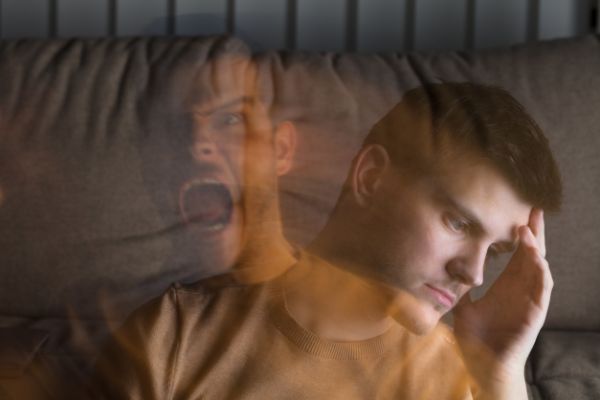|
New York State Bar Association President Henry Greenberg recently announced a call to action to consider removing mental health questions from bar applications. Greenberg noted“time in law school is marked by extreme stress, anxiety, overwhelming expectations, and financial uncertainty. Many students admit they are not seeking help because they are concerned that doing so will negatively impact their bar admission.”
Bar Applications On the current New York State application for admission to the Bar, applicants are asked to disclose information about their mental health status and substance abuse history. The questions are part of the character and fitness section of the application and imply that people with mental health issues are not fit to practice law. An applicant bears the burden of proving that they are fit to practice law. The question asks: “Do you currently have any condition or impairment including, but not limited to a mental, emotional, psychiatric, nervous or behavioral disorder or condition, or an alcohol, drug or other substance abuse condition or impairment or gambling addiction, which in any way impairs or limits your ability to practice law?” In contrast, bar applicants are not asked to disclose any physical illnesses. Removing the Question Currently, 40 states have similar mental health questions on their bar applications. There is a growing movement nationwide to remove these inquiries from the application process. Many law students forgo treatment for mental health conditions because they are afraid of the adverse effect such treatment could have on their admission. According to an American Bar Association survey, almost half of law students suffering from a mental health condition feared that seeking treatment could pose a threat to their bar admission. The New York Unified Court System will review the applications to determine if a change needs to be made to the inquiries. The application is continually updated and revised. Inquiries into the character and fitness of bar applicants should focus more on an individual’s conduct and behavior and less on their mental health treatment. Removing the mental health question could lead to an improvement in law student well-being as more people will feel comfortable accessing treatment. If you or a loved one has a mental disability and has been arrested or convicted of a crime, you need an experienced criminal defense attorney on your side. Elizabeth Kelley specializes in representing individuals with mental disabilities. To schedule a consultation call (509) 991-7058. The mental health of children in California is in crisis. A 2018 reportfrom the California Health Care Foundation noted that an increasing number of teens in the state suffer from major depression. According to the report, in 2015, 1 in 9 teenage girls attempted suicide. The problem is compounded by the fact that people in their teens and early twenties are less likely to receive mental health treatment than other groups. A new bill introduced in the California legislature hopes to provide some help with this crisis.
Senate Bill 12 Senate Bill 12, introduced by Democratic Senators Jim Beall and Anthony Portantino, seeks to create 100 youth drop-in centers across the state that can help support young people with mental health, substance abuse, and physical health issues. The centers would be created under a new initiative called the Integrated Youth Mental Health Program and would provide one-stop support to youth ages 12 to 25 who are too embarrassed or unable to seek help in a traditional school or medical setting. The drop-in centers would be designed in a way that would be inviting to teens and young people. They would provide mental health and substance abuse treatment, as well as educational and vocational support and peer mentoring. The initiative is modeled after similar programs found in Australia and Canada and would be the first of its kind in the United States. The bill requests $200 million in the budget to fund the centers. These funds could be combined with additional funds from the federal government. Senator Beall also introduced a bill to increase mental health services in California schools. However, not all young people want help from their school, or are not in school, so in the drop-in centers are important. The Importance of Mental Health Treatment Mental health issues are likely to first present themselves in people who are in their late teens and early twenties. This is an essential time to link young people with mental health services. Addressing and treating these concerns early can help prevent issues from escalating and becoming more difficult to treat later in life. If you or a loved one has a mental disability and has been arrested or convicted of a crime, you need an experienced criminal defense attorney on your side. Elizabeth Kelley specializes in representing individuals with mental disabilities. To schedule a consultation call (509) 991-7058. The men and women who honorably serve our country are true heroes. However, sometimes, these heroes return home changed people. The stress from the job, along with the difficulty of adjusting to civilian life, can have a serious impact on a veteran's well-being. In some cases, veterans come home with conditions like PTSD and substance abuse issues. A lack of support can place some of these veterans on the wrong side of the law.
Veterans’ Treatment Courts Similar to drug courts and mental health courts, Veterans’ Treatment Courts seek to provide a better option for veterans who have been charged with a crime. The goal of these courts is to help veterans in trouble with the law regain stability, mental health, and sobriety. The courts are a way of diverting veterans from the typical criminal justice system and offer them assistance with the factors that may have led to their crime. Veterans are linked to community-based services to assist with addiction and mental health issues. They are also given access to agencies that specialize in veterans’ affairs. In New York, Veterans' Treatment Courts take a team approach to address the needs of the veterans. Mental health providers, addiction counselors, veteran's affairs agencies, and peer mentors all work together to assist the veterans. Peer mentors are a critical part of the team approach. They are individuals who have military service and work toward helping fellow veterans in the criminal justice system. Veterans' Treatment Courts have been very successful in assisting veterans and preventing recidivism and future involvement with the criminal justice system. Expansion There are currently 33 Veterans’ Treatment Courts throughout the state of New York. These courts have been very successful, but more work needs to be done. There are currently 37 counties in New York that do not have a Veterans’ Treatment Court. Some counties lack the resources to support these courts. New York is now looking to change the law to allow criminal cases involving veterans to be transferred to a Veterans’ Treatment Court in an adjacent county. This could go a long way to helping even more veterans get their lives back on track. If you or a loved one has a mental disability and has been arrested or convicted of a crime, you need an experienced criminal defense attorney on your side. Elizabeth Kelley specializes in representing individuals with mental disabilities. To schedule a consultation call (509) 991-7058. In June of 2019, the Ohio House passed a billthat would end the use of the death penalty on individuals who suffer from severe mental illness. The bill received bipartisan support and is the result of a task force that reviewed the state’s administration of the death penalty.
Severe Mental Illness Under the bill, severe mental illness includes conditions such as schizophrenia, schizoaffective disorder, bipolar disorder, and delusional disorder. If an offender suffers from one of these conditions at the time they committed the crime, they could avoid the death penalty. In Ohio, individuals who commit aggravated murder are subject to the death penalty. If a defendant argues that they suffered from a serious mental illness at the time of the aggravated murder, a court can order a psychological evaluation. If the person is ultimately found guilty of aggravated murder, they may be sentenced to life without parole instead of the death penalty if it is found that they had a serious mental illness at the time. Opposition to the Bill The Ohio Prosecuting Attorneys Association has been opposed to the bill. They believe that there are already safeguards in place to help people with mental illness or developmental disabilities from being subject to the death penalty. They believe that the bill would only help those whose mental illness is so minor that they failed to create reasonable doubt in the minds of a jury that they were not guilty by reason of insanity. Moving Forward The bill is intended to be retroactive. This means that individuals who are currently on death row in Ohio can seek an evaluation regarding their mental health and have their sentence reduced to life without parole. There are currently 142 people on death row in Ohio. Ohio executions are currently on hold as officials search for a new means of administering the death penalty. A federal magistrate ruled that the old three-drug cocktail method was unconstitutional. House Bill 136 now moves to the Ohio Senate for consideration. If you or a loved one has a mental disability and has been arrested or convicted of a crime, you need an experienced criminal defense attorney on your side. Elizabeth Kelley specializes in representing individuals with mental illnesses. To schedule a consultation call (509) 991-7058. |
Details
Archives
March 2024
Categories |




 RSS Feed
RSS Feed